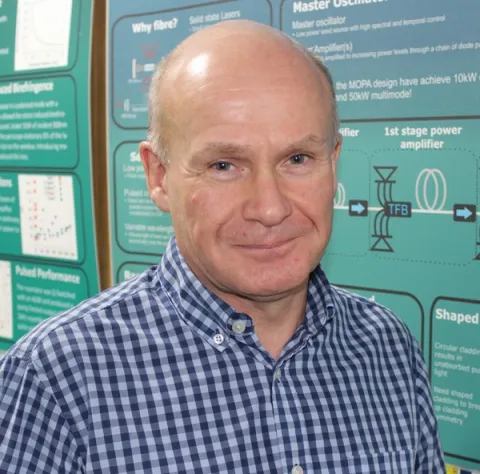About the project
This project aims to investigate novel concepts for high power fibre lasers operating in the two-micron wavelength band and their use in a range of application areas.
Two-micron fibre laser technology has the potential to yield a wealth of new applications in areas such as:
- industrial laser processing
- medicine
- optical communications
- laser weeding
Moreover, significant power scaling advantages can be gained by moving from traditional ytterbium-doped fibre lasers operating in the one-micron band to the two-micron band.
The main focus of this project will be to create a world leading power-scalable two-micron fibre laser platform based on thulium doped fibres for operation in continuous-wave and pulsed regimes. The research programme will study the physics of thulium doped fibre gain media to formulate new strategies for scaling laser output power whilst simultaneously achieving high efficiency and good beam quality. This will involve the development of novel fibre designs that will be fabricated in our advanced cleanrooms.
The active core material, thulium doped glass, offers access to a wide range of wavelengths in the two-micron band that overlap strong absorption bands in hydro-carbon containing materials and water, so an important aspect of the programme will be to develop lasers with flexibility in operating wavelength driven by the needs of emerging applications in areas such as medicine, organic materials processing and even laser weeding.


